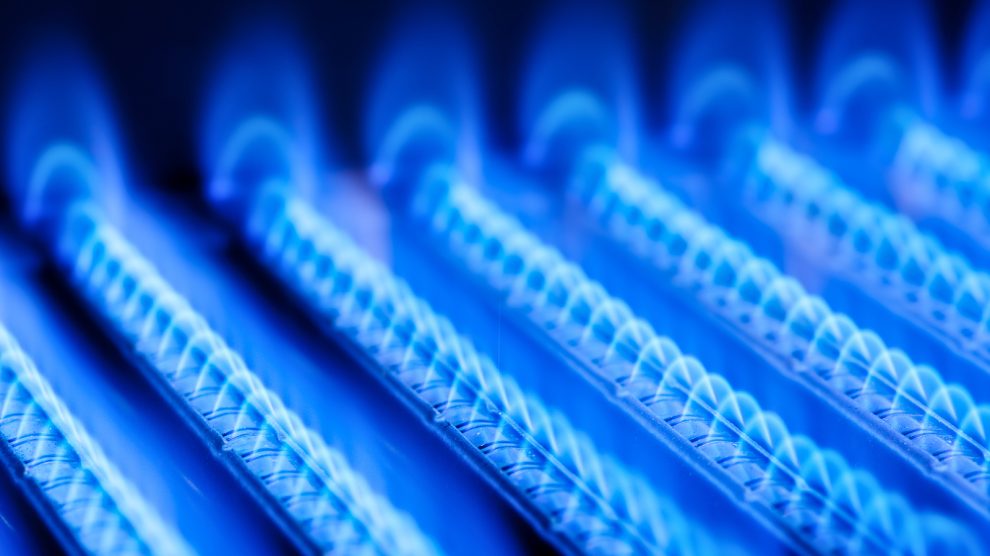Fossil fuels are an important component of the energy transition, believes an Estonian start-up, whose technology is helping firms bridge the gap to renewables.
Efenco, an Estonian cleantech start-up slashing carbon emissions in critical industrial heat applications, has closed a funding raise worth 4.5 million euros. The funding is comprised of 1.3 million euros in a financing round led by Ivo Remmelg for EstBAN Syndicate, and 3.2 million euros in grants from the EU’s European Innovation Council (EIC) and Estonia’s Archimedes Foundation.
The funds will be used for product engineering, to integrate advanced materials ensuring durability, functionality, and compliance. The start-up has already delivered 20 per cent energy and carbon savings for a major utility company in Tallinn and has a further eight commercial pilot projects lined up.
Its goal is to help remove 77 million tonnes of global CO2 emissions by 2033 – equivalent to 416Twh of new clean energy, or 40 per cent of the EU industrial heat sector’s annual consumption.
- For CEE, transitioning to sustainable heating is both a challenge and an opportunity
- In CEE, energy efficient buildings trump fossil fuel investment
- Private investment is key to debarbonising the Romanian economy
With net-zero carbon emissions an urgent necessity, over 140,000 TWh of energy are still generated from fossil fuels worldwide. Despite rapid advances in renewables, that’s still nearly 80 per cent of global energy production. The temperatures needed to make core industrial materials like steel and cement – essential for modern infrastructure – can only be achieved using fossil fuels. Steel manufacturing alone emits 1,800kg of CO2 per tonne and causes seven per cent of global CO2 emissions. The industries creating these materials are among the dirtiest on the planet.
Efenco says its team has a “passionate commitment” to accelerating the transition to low carbon technologies. It has developed cold-plasma-assisted combustion technology that can be rolled-out rapidly in a business model that requires zero capital outlay. It is already improving the efficiency of conventional energy production in industrial boilers by 20 per cent. Efenco believes its solution can eventually improve the combustion efficiency of natural gas by up to 40 per cent and of hydrogen by up to 75 per cent.
Unlike all other plasma-assisted combustion technologies, in use in jet engines, for example, Efenco’s cold-plasma-assisted combustion technology does not require an external energy source. It uses waste heat generated by combustion to generate plasma and enhance reaction efficiency. The EU-patented technology was validated by scientists from the University of Tartu in 2016 and 2022 and has been financially supported by the EU’s Horizon programme.
Hard choices
“There are some hard choices coming up if the world is going to make it to net zero,” says Kristjan Tiik, Efenco CEO and co-founder.
“It may be a difficult message for environmentalists to hear, but fossil fuels are an important component of the energy transition. Without them we can’t make steel or concrete. And without those, we can’t build the infrastructure needed for renewable energies. Efenco’s tech provides the industrial furnace efficiency breakthrough we need to bridge that gap. We see it as an essential foundation for the clean energy future, moving gradually towards hydrogen-based solutions.”
Efenco’s technology is inserted into otherwise unmodified combustion boilers. Conversion takes a few hours and can be applied across any industry that requires high-output energy generation. Besides steel and cement, other major opportunities include electricity generation, pulp and paper manufacturing, and ceramics production. Smaller scale boilers, including domestic heat boilers, are also a target in due course.
The company calculates that its initial technology could be installed in the 30 per cent of gas boilers being used in the EU for high temperature industrial process heat applications. Even at an 18 per cent efficiency gain, this represents a potential five per cent total reduction in the EU’s energy consumption and carbon emissions from natural gas combustion; a greater potential saving than from solar and wind combined, or nuclear.
Efenco already has six commercial partners lined up for scale-commercial pilot projects, including Adven, Thermory, and Bepco. The first of these is targeting 1,000 hours of continuous operation. To ensure a rapid roll-out, Efenco says that its business model eliminates the need for capital outlay by adopters, who reap the benefits of greater energy efficiencies from day one to meet their financial and ESG commitments. As a result, at least five other interested customers are waiting to deploy Efenco’s technology.
Based in Tallinn, Efenco was co-founded by Tiik, Aleksandr Nagornoy, and Aleksander Vlassov. The firm has secured an equity commitment of eight million euros via the European Investment Bank by 2026.
Unlike many news and information platforms, Emerging Europe is free to read, and always will be. There is no paywall here. We are independent, not affiliated with nor representing any political party or business organisation. We want the very best for emerging Europe, nothing more, nothing less. Your support will help us continue to spread the word about this amazing region.
You can contribute here. Thank you.


